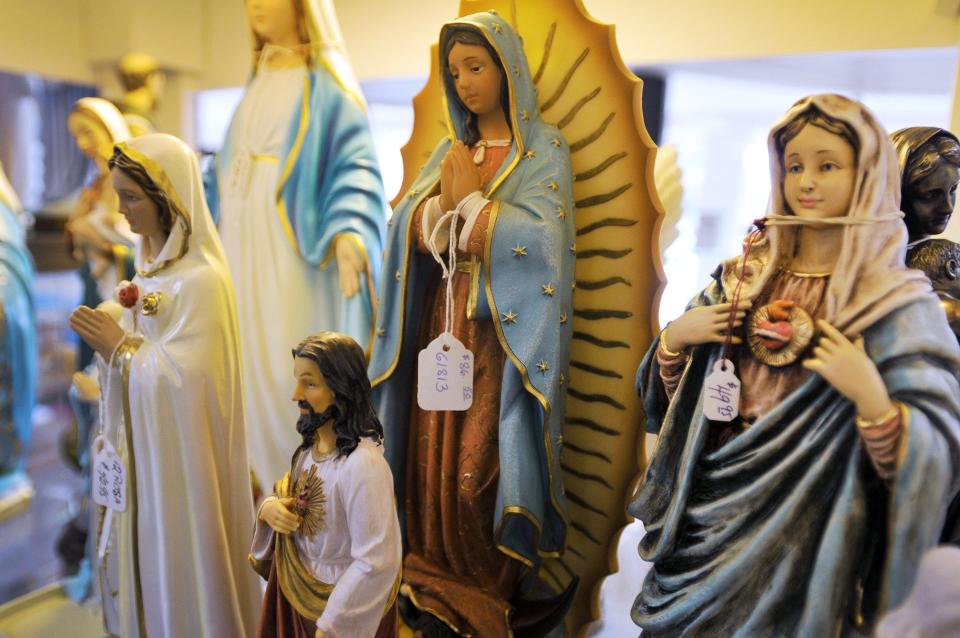Supreme Court ruling on Colorado LGBTQ case could influence lawsuit over Jacksonville HRO
A U.S. Supreme Court ruling letting a business owner refuse to create wedding websites for same-sex couples could cast a long shadow over a court case challenging part of Jacksonville’s human rights ordinance.
The Jacksonville lawsuit doesn’t focus on gay people, but Friday’s Supreme Court ruling about a Colorado web designer shifted boundaries on how business owners’ First Amendment rights apply to laws against discrimination.
That could have a big impact on how a judge in Jacksonville decides the suit the Queen of Angels Catholic Bookstore filed in February seeking an injunction to ensure the city’s HRO couldn’t be used to require employees to address transgender people by pronouns reflecting their sex at birth.
The fallout: Supreme Court First Amendment ruling on LGBTQ rights: What's it mean for Florida?
The Jacksonville lawsuit: Rejecting transgender labels, Catholic store's lawsuit fights Jacksonville human rights law
Trauma session: How this year’s Florida legislative session reopened wounds, left scars
A string of similar lawsuits could follow soon, said one scholar.
“We’re going to see a lot of these right-not-to-speak cases coming up,” said Clay Calvert, an emeritus professor at the University of Florida’s law school and a fellow at the right-leaning American Enterprise Institute.

The ruling in the Supreme Court case, 303 Creative LLC v Elenis, won’t change how anti-discrimination ordinances like Jacksonville’s are enforced for things like being served at a restaurant or getting a hotel room, Calvert said.
But he said the ruling could allow more people to refuse services that are personal expressions of the people being hired — website creators, calligraphers, maybe hairstylists.
Those different jobs connect because their work could, at least in some cases, be so personal that a court would consider their product “speech,” and the Supreme Court ruling prioritized people’s First Amendment free-speech rights over rules banning discrimination.
Lawyers for the owner of Queen of Angels and Colorado web designer Lorie Smith both argued their clients will do business with anyone but said the businesses shouldn’t have to do things owners find violate their values.
“Lorie Smith’s win at the Supreme Court was a win for every American’s free speech rights. The Court affirmed that the government cannot coerce anyone to speak a message that violates their core beliefs,” Queen of Angels attorney Hal Frampton said by email.

“We are hopeful that this win will continue to impact other cases … where we are seeing laws that restrict free speech and impose their own ideology on individuals who don’t agree,” said Frampton, senior counsel at the religion-oriented legal group Alliance Defending Freedom. “Like Lorie, Christie DeTrude, owner of the bookstore, should not have to wait for the government to punish her to fight these unjust laws.”
Alliance Defending Freedom has handled both cases for the plaintiffs.
Both Smith’s and DeTrude’s businesses went to court before they had been charged with violating anti-discrimination laws, asking judges upfront for orders protecting them from laws they argued violated their free-speech rights.
In Jacksonville, Chief U.S. District Judge Timothy Corrigan rejected a request for a preliminary injunction and dismissed the case’s original complaint in June. But Corrigan said a new version of the complaint could be filed by the end of this work week.
He also told lawyers for both sides to develop arguments about whether the bookstore qualified for an exemption that Jacksonville’s law allows for “religious corporations,” businesses that lawyers told the judge they hadn’t found much description of in earlier court cases. If the exemption fits the bookstore, Calvert said the Jacksonville case “might be rendered moot” and the store could get a pass on Jacksonville’s law regardless.
This article originally appeared on Florida Times-Union: Jacksonville HRO lawsuit may be shaped by Supreme Court LGBTQ ruling

